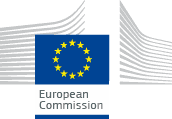Links :: European institutions
EU Commission
The Commission is the politically independent institution that represents and upholds the interests of the EU as a whole. It is the driving force within the EUís institutional system: it proposes legislation, policies and programmes of action and it is responsible for implementing the decisions of Parliament and the Council.
Like the Parliament and Council, the European Commission was set up in the 1950s under the EUís founding treaties.
http://europa.eu/
|
|  |
EU Commission - Health & Consumer Protection DG
The Health & Consumer Protection DG job is to help make Europe\'s citizens healthier, safer and more confident.
Over the years the European Union has established EU laws on the safety of food and other products, on consumers\' rights and on the protection of people\'s health.
http://ec.europa.eu/health/index_en.htm
|
|  |
Health-EU
The Public Health Portal of the European Union
The European Commission has recently launched the EU public health portal as a single point of reference for reliable and easily accessible information on a wide range of health-related topics for citizens, patients, health professionals, stakeholders and policy-makers.
ec.europa.eu/health-eu/
|
|  |
Council of the European Union
The Council is the EU\'s main decision-making body. Like the European Parliament, the Council was set up by the founding treaties in the 1950s. It represents the member states, and its meetings are attended by one minister from each of the EU\'s national governments.
ue.eu.int
|
|  |
European Parliament
The European Parliament represents the EU\'s citizens and is directly elected by them.
The members of the European Parliament (MEPs) sit not in national blocks but in Europe-wide political groups that bring together all the main political parties operating in the EU member states.
The Parliament\'s origins go back to the 1950s and the founding treaties. Since 1979, MEPs have been directly elected by the citizens they represent.
Parliamentary elections are held every five years, and every EU citizen who is registered as a voter is entitled to vote. So Parliament expresses the democratic will of the Union\'s 374 million citizens, and it represents their interests in discussions with the other EU institutions.
In 2004, Josep Borrel Fontelles was elected President of the European Parliament.
www.europarl.europa.eu/
|
|  |
EUR-Lex
This is the portal to the European Union law.
http://www.europarl.europa.eu/oeil/
|
|  |
EU platform for action on diet, physical activity and health
The EU platform for action on diet, physical activity and health is a forum for European-level organisations, ranging from the food industry to consumer protection NGOs, willing to commit to tackling current trends in diet and physical activity.
The idea is that, led by the Commission, the platform will provide an example of coordinated action on this problem by different parts of society that will encourage national, regional or local initiatives across Europe.
http://ec.europa.eu/health/nutrition_physical_acti...
|
|  |







 Print this page
Print this page Recommend this page
Recommend this page Report defect link
Report defect link